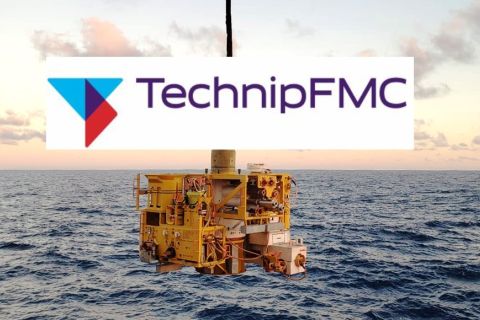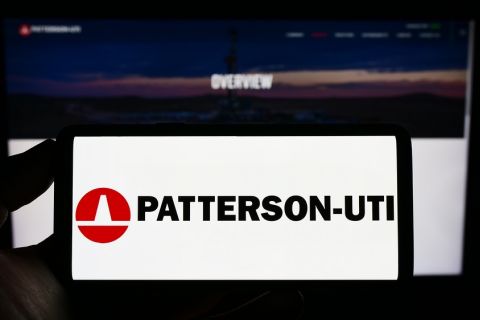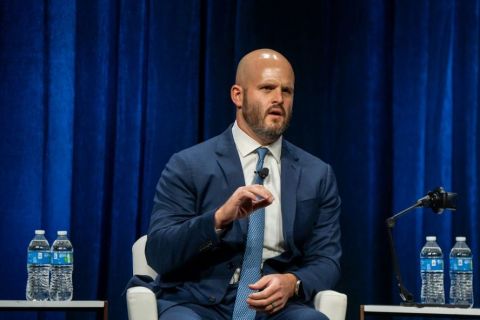Construction to expand the Trans Mountain oil pipeline could begin in September, assuming the next regulatory steps go smoothly, the project's chief executive said on June 19.
The $5.56 billion project was stalled a year ago after a Canadian court ruled the federal government, which also owns Trans Mountain, failed to adequately consult indigenous groups. Prime Minister Justin Trudeau on June 18 re-approved the expansion, cheering the oil industry but angering environmental groups.
Expanding Trans Mountain would ease congestion on pipelines that move Alberta crude, lifting Canadian prices.
"If things go according to plan, I can see shovels in the ground as early as September," said Trans Mountain Chief Executive Ian Anderson on a conference call. "... Getting started is the most critical thing."
Construction looks to take 30 to 34 months, he said. Oil could flow through the twinned pipeline by the second or third quarter of 2022, delayed by about a year since last year's court decision, Anderson said.
Work to obtain building permits started on June 18, Canadian Finance Minister Bill Morneau said separately in Calgary.
Once complete, the project will triple the capacity of Trans Mountain, which carries crude from Alberta's oil sands to British Columbia's Pacific Coast.
Supporters say it is a vital conduit to help Canadian oil reach higher-priced international markets, but opponents, including environmental and indigenous groups and some municipalities, argue the risk of a spill is too great.
Trans Mountain has stockpiled about 30% of the pipe it needs and would resume construction where it left off a year ago, at the Westridge Marine Terminal in Burnaby, B.C., and between Edmonton and Jasper, Alberta, Anderson said.
The project still requires approvals from the National Energy Board (NEB) regulator, permits from municipal and provincial governments and finalization of its route.
The NEB expects to issue a certificate of public convenience and necessity this week, but Trans Mountain must also meet 156 conditions, said spokeswoman Sarah Kiley. Some conditions must be met before construction can resume.
The Coldwater indigenous band in British Columbia has raised concerns about risks to its aquifer. Anderson said Trans Mountain has closely consulted Coldwater and is willing to consider route alternatives.
In British Columbia, where the provincial government opposes the project, a protest against Trans Mountain took place in Vancouver on June 18 and another is planned in Victoria on June 22.
Anderson said Trans Mountain has had no direct conversations with the Canadian government about preventing protests that may aim to disrupt work, but said it has its own security plan in place.
Trudeau's government bought the pipeline last year from Kinder Morgan Canada for $3.4 billion to help the expansion project get built.
Opponents of Trans Mountain are expected to challenge the approval in court. Morneau said the government felt it had fulfilled its duty to consider environmental impacts and consult with indigenous groups.
"Our view is we have done the work we need to do to make sure this project can go forward in the right way," he said.
Investors also remain skeptical. The Toronto Stock Exchange energy index was down 0.6%, even though crude futures were slightly higher.
Recommended Reading
NOV's AI, Edge Offerings Find Traction—Despite Crowded Field
2024-02-02 - NOV’s CEO Clay Williams is bullish on the company’s digital future, highlighting value-driven adoption of tech by customers.
TechnipFMC Eyes $30B in Subsea Orders by 2025
2024-02-23 - TechnipFMC is capitalizing on an industry shift in spending to offshore projects from land projects.
From Restructuring to Reinvention, Weatherford Upbeat on Upcycle
2024-02-11 - Weatherford CEO Girish Saligram charts course for growth as the company looks to enter the third year of what appears to be a long upcycle.
Patterson-UTI Braces for Activity ‘Pause’ After E&P Consolidations
2024-02-19 - Patterson-UTI saw net income rebound from 2022 and CEO Andy Hendricks says the company is well positioned following a wave of E&P consolidations that may slow activity.
ProPetro Reports Material Weakness in Financial Reporting Controls
2024-03-14 - ProPetro identified a material weakness in internal controls over financial reporting, the oilfield services firm said in a filing.





